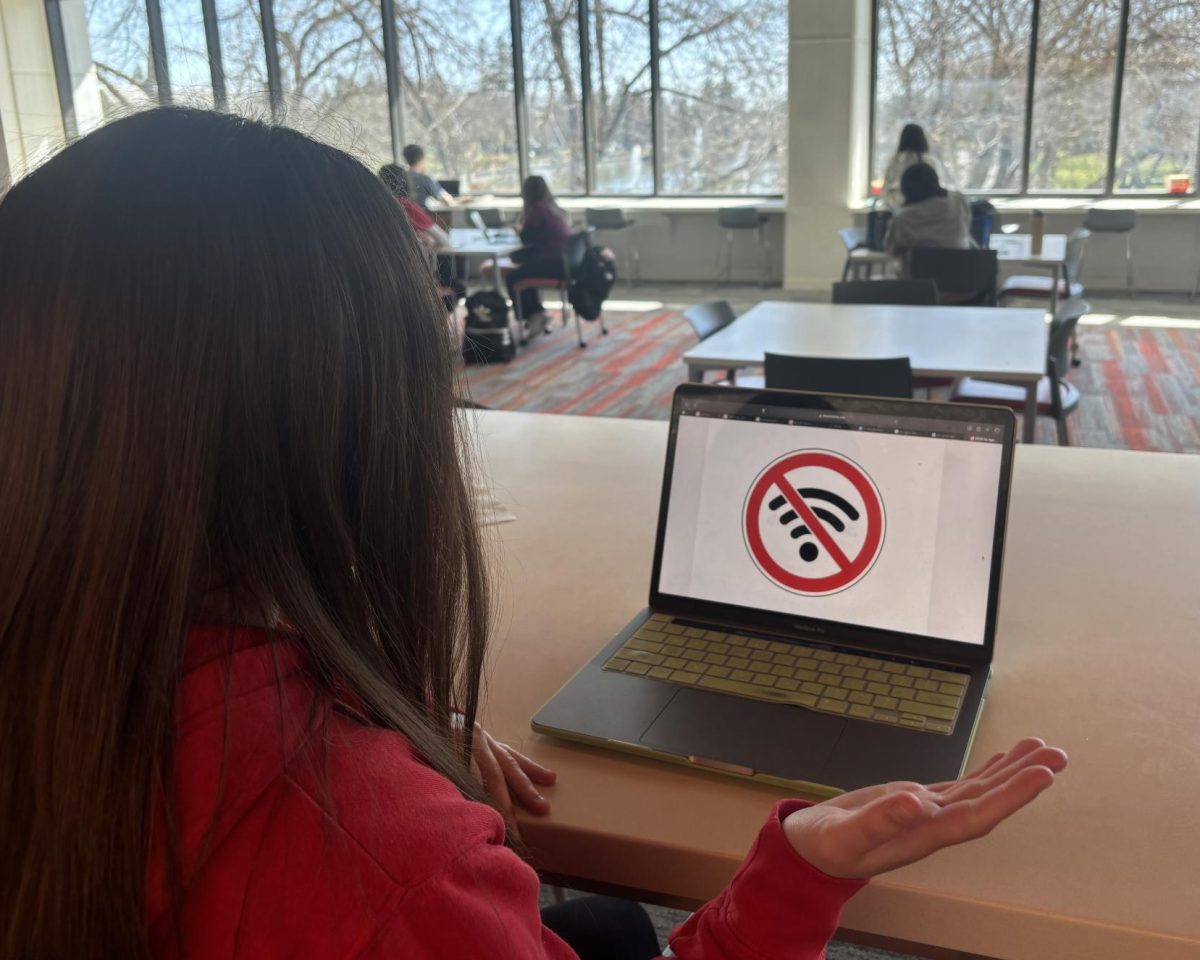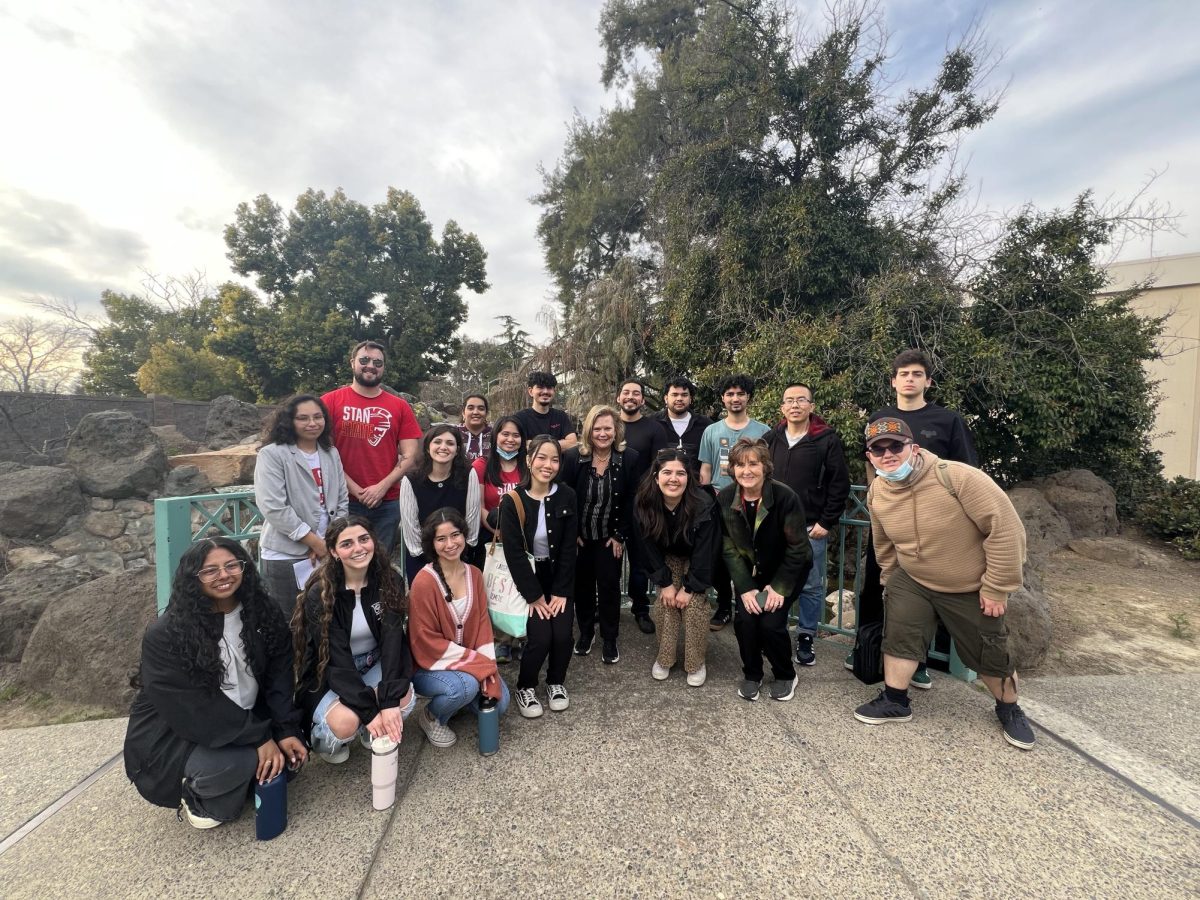Do beautiful people really have it better? Studies show that people who display favorable physical characteristics are thought to have more positive social interactions than negative ones.
Dr. Victor Luevano (Professor, Department of Psychology) said that the halo effect is why people who are seen as attractive are typically treated better. Although there is plenty of research supporting the halo effect, it doesn’t always work.
“Basically, we think that beauty is good. Someone who looks attractive is expected to also have a number of other positive characteristics,” Dr. Luevano said.
Manasha Arellano (senior, Criminal Justice) a member of Stan State women’s track and field, said that people don’t typically associate positive characteristics with her.
“Most people see me and immediately feel intimidated. I’ve heard the ‘Why do you always look mad and don’t want to be bothered’ more than anything, but in reality, I’m just minding my business,” Arellano said.
Arellano said she tries to smile and say “Hi” to people to reduce comments such as that.
However, there is less research supporting the idea that attractive people are viewed negatively.
Joseph Alvarez (junior, Psychology) is a member of the Stan State men’s basketball team. He stated that people around him stereotype him when they first meet him.
“I think when the conversation begins, people don’t expect me to be so well-versed on certain topics. They only view me as Joseph Alvarez: Basketball player,” Alvarez said. “Most people expect me to be mean, or rather stand-offish. I think it’s because I walk around campus with a serious demeanor on my face, or maybe it’s because people expect athletes to be all business.”
Alvarez added that he is the opposite and said he tries to help his classmates lighten up by putting some sort of “comedic input” in a class discussion.
“I try my best to prove that I’m so much more than what people see me as, and I think if you ask anybody I conversate with, they’ll tell you that I’m much more than just a basketball player,” said Alvarez.
Even outgoing people are expected to be in a constant, positive mood. Sarah Younen (sophomore, Liberal Studies) tries to keep her aura positive in her interactions with others.
“I think with being outgoing, the aura you give off is positivity…” said Younen. “When I am unhappy, people who are closer to me have the ability to read me instantly, and when that happens, they acknowledge it and question if everything is okay right away.”
When it comes to group projects in school, Younen warms up to her group members fairly quickly.
“When I am in a group setting in general, I am extremely social and will socialize with every single member of the group,” Said Younen. “I do this in order to understand the dynamic of my surroundings. In school, my group members definitely speak the most with me, however, the reason for that is simply because I put myself out there.”
For Arellano, group projects bring a bit of a challenge when it comes to her group members warming up to her.
“When I have group projects, I usually get overlooked because I’m convinced my group members think I have no idea of what’s going on in class, but I always do my part. Then, they eventually talk to me and we share ideas. So it takes a bit of time,” said Arellano.
Dr. Luevano said it is not uncommon for some individuals to speak negatively of people they are competing against.
“It might also be the case that someone has been treated poorly by others with similar features, and expects the same negative experience,” said Dr. Luevano.
Categories:
Halo Effect: Qualities of attractiveness
Juan Ruiz
•
February 22, 2018
Photo of Joseph Alvarez, member of Stan State’s men’s basketball team (Signal Photo/ Juan Ruiz-Olguin).
0
More to Discover











